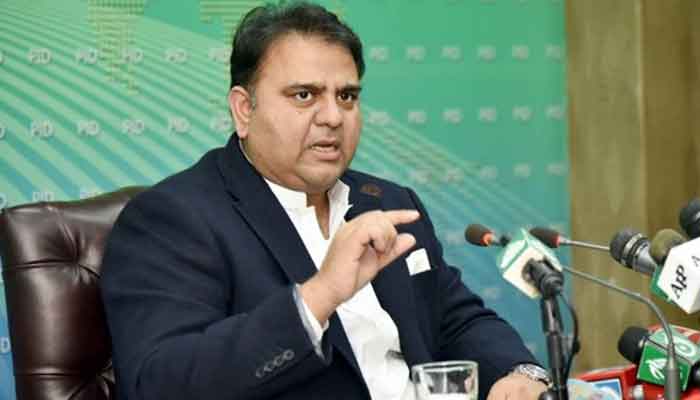Staff Reporter Islamabad
Information and Broadcasting Minister Fawad Chaudhry said on Thursday that extremism in Pakistan was not rooted in madressahs but schools and colleges, where teachers were hired during the 80s and 90s as part of a plot to “basically teach extremism”.
Addressing a consultative conference on terrorism in Islamabad, Chaudhry said that the students of “ordinary schools and colleges” had been involved in notable incidents of extremism in Pakistan and not of madressahs.
Because, he went on, “you closed their (school and college students’) minds. If you cultivate a society where an opposing view is immediately declared kufr (heresy) … how can you present an opposing view?”
“And if no opposing views are tolerated, how will you bring a soft change [in society]?” he asked rhetorically.
In this regard, Chaudhry gave the example of late Jamiat Ulema-i-Islam-F leader and religious scholar Maulana Hassan Jan, whom he said was murdered for giving a fatwa that declared suicide attacks forbidden in Islam. Similarly, he added, for such reasons many other scholars were unable to come to Pakistan.
“Likewise, when a matter is taken up by the Council of Islamic Ideology and I ask that the other side’s perspective also be presented, they ask back, ‘do you want us killed?’” the minister said. He claimed that scholars in Pakistan were afraid of speaking up, adding that society itself had to rectify the narrative of extremism.
The minister recalled that at the time of creation of Pakistan, “it was the land of Sufis [and] home to [their] tombs.”
He continued that around 300 years ago, there was no religious extremism in today’s Khyber Pakhtunkhwa, Punjab and other areas in the country. “Religious extremism was seen more in regions that are in India now. Areas over here (Pakistan) never had religious extremism to the extent [seen today],” he said, regretting that “Pakistan faces a grave danger today.”
“We don’t have any potential threat from India. We have the sixth largest army in the world, we are an atomic power, and India cannot compete with us,” he continued. “We face no danger from America. We face no danger from Europe. The biggest danger we face [today] is from within [Pakistan].”
The minister acknowledged that remedial steps taken to counter extremism in the country were not sufficient, adding that neither the government nor the state was prepared enough to deal with the problem.










